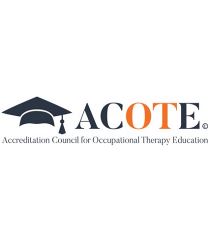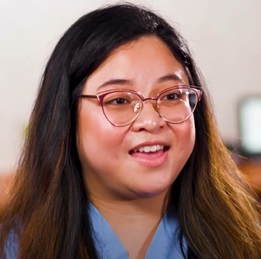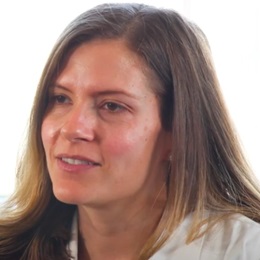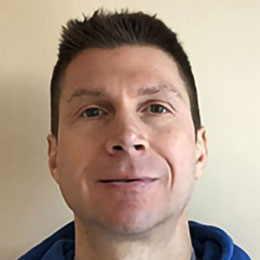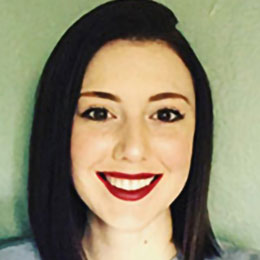Occupational Therapy Assistant
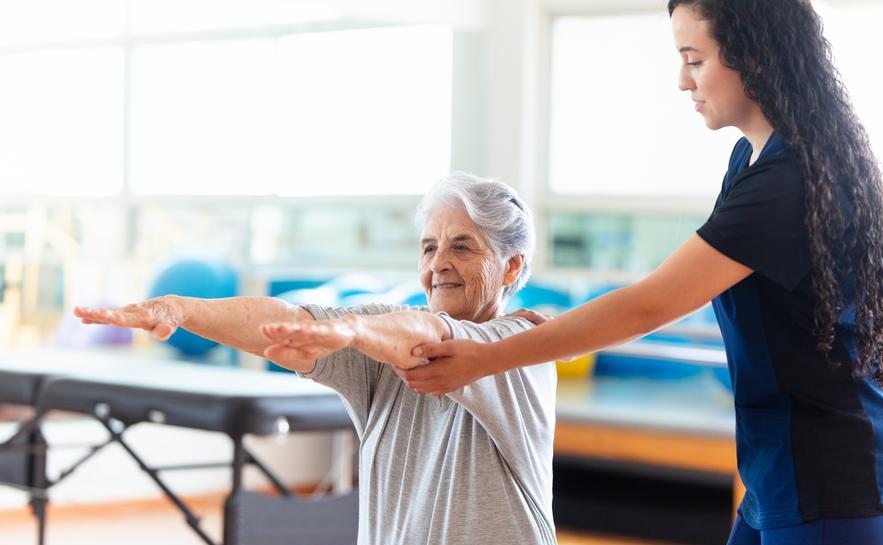
Request Information
Associate of Applied Science in Occupational Therapy Assistant
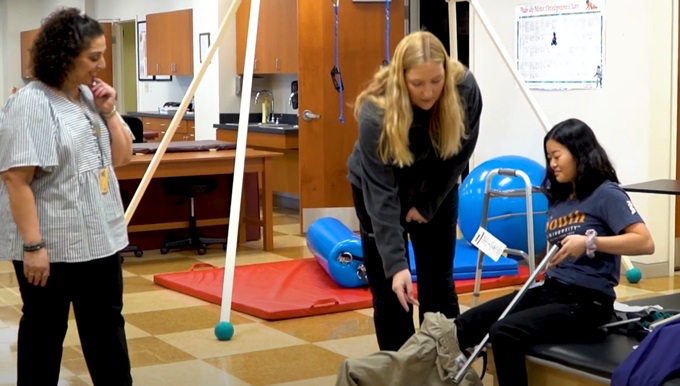
The Associate of Applied Science Occupational Therapy Assistant program at South University teaches qualified students how to pursue becoming an occupational therapist assistant1. Occupational therapy assistants (OTA) is a profession that promotes the health and well-being of people across their lifespan and aims to 'treat the whole person' to help individuals perform meaningful and purposeful daily activities. They work with people of all ages who have physical, psychological, or developmental conditions to promote health, well-being, and their ability to participate in the important activities in their life. This includes taking care of themselves and their families, working, volunteering, and going to school, among many others. OTAs also assist their patients with activities such as dressing, bathing, crafts, games, cooking to improve strength, coordination, sensation, perception, cognition, or balance.
The OTA program further seeks to lead the profession and community through its contributions in educational leadership, community and professional service, learning, and scholarship. With a hybrid of online and in-person instruction, our program is tailored to accommodate those facing scheduling challenges due to work, family obligations, or distance from campus.2
South University’s OTA program meets the requirements for state licensure in Virginia. Graduates3 are required to sit for and pass the national certification exam and obtain a state license in order to work in the field. (Exam names vary by program) Please refer to the State Professional Licensure Determination and National Certification/Licensure section of the University catalog for program and state specific information. South University cannot guarantee each graduate will pass the required licensure examinations. Outside agencies control the requirements for taking and passing certification/licensing exams and are subject to change without notice to South University. Students must pass the required licensure to work in their respective field.
NBCOT Certification Exam Program performance data on the NBCOT certification examination is available for public viewing by state and program level: https://www.nbcot.org/Educators-Folder/SchoolPerformance.
1South University does not promise or guarantee licensure, employment, or salary amounts.
2Although hybrid offered courses are available in-person or online, this program still requires Clinical courses to be conducted in person and on-site. We cannot guarantee flexibility in these components of the program.
3Graduates are required to sit for and pass the national certification exam and obtain a state license in order to work in the field. (Exam names vary by program) Please refer to the State Professional Licensure Determination and National Certification/Licensure section of the University catalog for program and state specific information. South University cannot guarantee each graduate will pass the required licensure examinations. Outside agencies control the requirements for taking and passing certification/licensing exams and are subject to change without notice to South University. Students must pass the required licensure to work in their respective field.
South University, Richmond, and South University, Virginia Beach, are certified to operate in the Commonwealth of Virginia pursuant to Title 23, Chapter 21.1, §23-276.4 of the Code of Virginia by the State Council of Higher Education for Virginia (James Monroe Building, 101 North 14th St; Richmond, VA 23219; 804-225-2600; www.schev.edu).
Accreditation Council for Occupational Therapy Education
The Occupational Therapy Assistant program at South University, Richmond is accredited by the Accreditation Council for Occupational Therapy Education (ACOTE) of the American Occupational Therapy Association (AOTA), located at 7501 Wisconsin Avenue, Suite 510E, Bethesda, MD 20814. ACOTE’s telephone number c/o AOTA is (301) 652-6611. https://www.acoteonline.org. Graduates of the program will be eligible to sit for the national certification examination for the occupational therapy assistant administered by the National Board for Certification in Occupational Therapy (NBCOT). After successful completion of this exam, the individual will be a Certified Occupational Therapy Assistant (COTA). In addition, most states require licensure in order to practice; however, state licenses are usually based on the results of the NBCOT Certification Examination. Note that a felony conviction may affect a graduate’s ability to sit for the NBCOT certification examination or attain state licensure. More information on ACOTE may be obtained at http://www.acoteonline.org.
Admission Requirements
Procedure for Admission into the Professional Phase of the Associate of Science or Associate of Applied Science in Occupational Therapy Assistant Program
Admission into the Occupational Therapy Assistant (OTA) program is a two-step process:
- Candidates are eligible to enter the general education phase of the OTA program as “OTA students” by meeting South University’s General Undergraduate Admission Requirements.
- Candidates must complete prerequisite coursework and meet all requirements outlined below to be eligible for admission to the professional phase of the OTA program.
Students may transfer prerequisite courses into the program before entering the professional phase if approved by the registrar. The coursework that is transferred to South University must permit the student to obtain a 2.85 CGPA by the time the student applies for admission into the OTA professional phase. Students who transfer coursework into South University but cannot mathematically attain a CGPA of 2.85 by the time they would enter the professional phase will not be admitted to the OTA program.
Transfer credit will not be accepted for South University courses with an OTA prefix.
Note: This policy does not apply to South University OTA students (in good standing) transferring between campuses.
Admission Requirements for the Professional Phase of the Occupational Therapy Assistant Program
Applicants must apply for admission into the professional phase of the Occupational Therapy Assistant (OTA) program. Applicants must submit a complete application packet and meet all admission requirements as stated below to enter the ranking process. The professional phase slots will be filled by applicants with the greatest academic potential for success as determined by the ranking process. Applicants with the highest numerical ranking will be admitted to the professional phase of the program.
The criteria to determine admission to the OTA program include:
- Application must be submitted seven (7) weeks prior to the start of the professional phase of the program.
- Applicants must meet the Essential Functions of the OTA program.
- Applicants must have a minimum grade of ‘C’ or above in all prerequisites, except for the following course, in which students must achieve a minimum grade of ‘B’ or above: OTA1003 Introduction to Occupational Therapy Assistant. (OTA1001 Introduction to Occupational Therapy is an acceptable substitution.)
- Applicants must achieve a minimum CGPA of 2.85 or greater in prerequisite coursework. All prerequisite coursework must be successfully completed prior to entry into the Professional Phase of the OTA program.
Applicants must have successfully completed the following courses in the past seven years from the intended start date of the Professional Phase of the OTA program: Medical Terminology, Anatomy and Physiology I (lecture and lab) and Anatomy and Physiology II (lecture and lab). Applicants must have successfully completed OTA1003 Introduction to Occupational Therapy Assistant in the past two years from the intended start of the Professional Phase of the OTA Program. (OTA1001 Introduction to Occupational Therapy is an acceptable substitution.)
Ranking of Applicants for Admission into the Professional OTA Curriculum will be based upon the following criteria:
- Cumulative GPA in required prerequisite coursework (2.85 or greater required).
- Science GPA (2.0 or greater required). Science coursework will not be accepted if greater than 7 years old.
NOTE: If a qualified student is not accepted or if a student is unable to matriculate into the Professional OTA Curriculum, they may use that same application to apply into the next cohort on that same campus within one year from the date of application submission. After that time, the student must apply as a new student.
Essential Functions for the OTA Program
The following are considered to be essential functions related to the profession of occupational therapy to be successful in the Occupational Therapy Assistant (OTA) program and in future employment as a Certified Occupational Therapy Assistant (COTA).
It is the responsibility of the OTA Program at South University to inform students considering a career as a COTA about the essential functions required both in the academic program and in the workforce. Factors and requirements will vary, depending on the specific area of practice and work setting.
Students must demonstrate safe and continuous application of these essential functions or of any and all others that are integral to the success of the OTA student and future occupational therapy practitioner. Students will display professional behaviors, assess their own performance with respect to the behaviors, and be ready to make behavioral changes as directed by academic and clinical faculty.
In addition, the OTA Progressions Committee may become involved in issues related to a student's performance of the essential functions. The OTA Progressions Committee may make recommendations to the OTA Program Director that result in, but are not limited to, a lower course grade, the creation of a remediation plan, exclusion from a course, dismissal from a Level I or Level II Fieldwork experience, professional behavior probation or dismissal from the OTA program and/or South University.
Both Section 504 of the Rehabilitation Act, 29 U.S.C.A. Section 794, and the Americans with Disabilities Act prohibit discrimination against "otherwise qualified" persons with a disability. South University provides accommodations to qualified students with disabilities. The Disability Services office assists qualified students with disabilities in acquiring reasonable and appropriate accommodations.
All students must demonstrate competency in the following essential functions related to the profession of occupational therapy:
Behavioral/Emotional Functions
Adaptation: The ability to respond with flexibility to change or difference.
Emotional Stability: The ability to control one's own emotions, differentiate between different emotions and identify each appropriately; use emotions to guide thinking and direct behavior.
Interpersonal Skills: The ability to interact effectively with others.
Safety: Maintain the well-being of others in compliance with policies and procedures.
Ethics: The ability to distinguish between right and wrong, to comply with authority and with policies and procedures.
Professional Behavior and Appearance: The ability to adjust behavior and appearance in response to given circumstances.
Cognitive Functions
Critical Thinking: The ability to define and resolve issues by asking questions, gathering and analyzing information.
Time Management: The ability to identify and prioritize tasks to be accomplished and maintain work pace appropriate to given work load.
Math, Reading Comprehension: The ability to apply basic math functions, calculate time and simple measurements; comprehend written words.
Perception: The ability to be aware of things in relation to others and to discriminate between those relationships.
Communication Functions
Verbal: The ability to speak using the English language, clearly communicating and clarifying information.
Written: The ability to communicate legibly and concisely in English, using proper grammar, punctuation, spelling, style and formatting.
Listening, Comprehending, Responding: The ability to hear, understand and respond appropriately to what was communicated.
Sensory Functions
Hearing: The auditory ability to detect sound within 10 feet away, sufficient to monitor clients and interact with others.
Touch: The ability to come into physical contact with something and perceive that it is there.
Vision: The ability to look at and see something or someone close-up and from a distance greater than 20 feet, noting verbal and nonverbal postures or behaviors.
Physical Functions
Fine motor dexterity: The ability to coordinate small muscle groups during movement, usually involving coordination between the hands, fingers and eyes to manipulate small objects.
Gross motor skills: The ability to coordinate large muscle groups to move and to stabilize the head, trunk, arms and legs to reach, lift, push, pull, stand, balance, walk, run, bend, kneel and crouch; possess minimum grip strength of 30 pounds in one or both hands, and the ability to stand up to 30 minutes at a time, push up to 250 pounds and lift/transfer up to 250 pounds.
Mobility: The ability to independently move easily from point A to point B.
Endurance: The ability to exert self and remain active for a long period of time (e.g., 45 minutes); stamina.
Environmental Functions
Working conditions: The ability to recognize, avoid and prevent safety and health hazards in the work setting.
For additional admissions information please see the admissions section here.
The Occupational Therapy Assistant program at South University, Richmond, Virginia Beach, and Tampa are accredited by the Accreditation Council for Occupational Therapy Education (ACOTE) of the American Occupational Therapy Association (AOTA), located at 7501 Wisconsin Avenue, Suite 510E, Bethesda, MD 20814. ACOTE's telephone number c/o AOTA is (301) 652-6211, and its web address is
http://www.acoteonline.org.
Graduates of the program will be eligible to sit for the national certification examination for the occupational therapy assistant administered by the National Board for Certification in Occupational Therapy (NBCOT). After successful completion of this exam, the individual will be a Certified Occupational Therapy Assistant (COTA). In addition, all states require licensure in order to practice; however, state licenses are usually based on the results of the NBCOT Certification Examination. Note that a felony conviction may affect a graduate's ability to sit for the NBCOT certification examination or attain state licensure. More information on ACOTE may be obtained at
http://www.acoteonline.org.
Accreditation
The Occupational Therapy Assistant program at South University, Richmond is accredited by the Accreditation Council for Occupational Therapy Education (ACOTE) of the American Occupational Therapy Association (AOTA), located at 7501 Wisconsin Avenue, Suite 510E, Bethesda, MD 20814. ACOTE’s telephone number c/o AOTA is (301) 652-6611. http://www.acoteonline.org. Graduates of the program will be eligible to sit for the national certification examination for the occupational therapy assistant administered by the National Board for Certification in Occupational Therapy (NBCOT).After successful completion of this exam, the individual will be a Certified Occupational Therapy Assistant (COTA). In addition, most states require licensure in order to practice; however, state licenses are usually based on the results of the NBCOT Certification Examination.
Note that a felony conviction may affect a graduate’s ability to sit for the NBCOT certification examination or attain state licensure. More information on ACOTE may be obtained at http://www.acoteonline.org.
Career Outlook
When you have completed the program and graduated, you will be able to pursue a career* as an occupational therapy assistant.
*South University does not promise or guarantee licensure, employment, or salary amounts.
Graduates are required to sit for and pass the national certification exam and obtain a state license in order to work in the field. (Exam names vary by program) Please refer to the State Professional Licensure Determination and National Certification/Licensure section of the University catalog for program and state specific information. South University cannot guarantee each graduate will pass the required licensure examinations. Outside agencies control the requirements for taking and passing certification/licensing exams and are subject to change without notice to South University. Students must pass the required licensure to work in their respective field.
Certification
Requirements
If you are interested in pursuing a career as an occupational therapy assistant, you must have a high school diploma or equivalent and an associate’s degree from an accredited program offering the occupational therapy assistant curriculum. Individuals graduating from the Occupational Therapy Assistant program at South University will graduate with an Associate of Applied Science degree.
Once all academic and fieldwork requirements are completed, students apply to take a national certification exam that is administered online by the National Board for Certification in Occupational Therapy (NBCOT). Program performance data on the NBCOT certification examination is available for public viewing by state and program level: https://www.nbcot.org/Educators-Folder/SchoolPerformance.
Upon successful completion of this exam, individuals may use the designation COTA following their name. NBCOT re-certifies occupational therapy practitioners every three years and has set continuing education requirements as part of that process.
South University’s OTA program meets the requirements for state licensure in Virginia.
For questions regarding the professional licensure in this state, please see the Professional Licensure Determination section of the University catalog.
The Web site address for the National Board for Certification in Occupational Therapy (NBCOT) is http://www.nbcot.org/.
Richmond OTA Performance Data on NBCOT Certification Exam
Program performance data on the NBCOT certification examination is available for public viewing by state and program level: https://www.nbcot.org/Educators-Folder/SchoolPerformance.
Course Requirements
Offered in the eight-quarter sequence at South University, Richmond only.
This program is a technical program, and credits generally earned in this program are not applicable to other degrees.
(must be taken concurrently)
(must be taken concurrently)
Cost of Attendance
Cost of Attendance
To view the South University, Richmond OTA program cost of attendance, please click HERE.
Graduation Rates
Graduation Rate for OTA Program at South University, Richmond
The total number of graduates from the Occupational Therapy Assistant program at South University, Richmond during the three-year period of 2022-2024 was 21, with an overall graduation rate of 88%.
| Graduation Year | Number of students who graduated on time (G1) | Number of students who graduated within 150% of expected time (G2) | Number of students admitted in original cohort (G3) | Number of students who withdrew due to reasons not related to academic or clinical performance (G4) | Graduation Rate |
| 2022 | 9 | 1 | 12 | 1 | 91% |
| 2023 | 6 | 1 | 9 | 0 | 78% |
| 2024 | 4 | 0 | 5 | 1 | 100% |
Program results from the National Board for Certification in Occupational Therapy (NBCOT) can be found online at https://www.nbcot.org/Educators-Folder/SchoolPerformance.
NOTE: This information is posted in compliance with ACOTE Standard A.4.2. Accurate and current information regarding student and program outcomes must be readily available to the public on the program’s Web page. At a minimum, the following data must be reported for the previous 3 years: Total number of program graduates and graduation rates.
NOTE: ACOTE Graduation Rate Definitions: The number of students who graduate on time (G1) plus the number of students who graduate within 150% of expected time (G2) divided by the number of students admitted in the original cohort (G3) minus the number of students who withdrew due to military, health, family issues, death, and other reasons not related to academic and clinical performance (G4). Calculation per calendar year is + (G1 + G2)/(G3 - G4).
NOTE: Graduation Rates calculated according to the ACOTE Graduation Rate Definitions may differ from guidelines or requirements used to calculate the graduation rate in the Facts You Should Know [FYSK], or other publicly disclosed graduation/completion rates.
Outcomes
The occupational therapy assistant works under the supervision of the occupational therapist to help individuals regain or accommodate to decreased range of motion, muscle strength, coordination, perception and activities of daily living, which includes dressing, eating, toileting, hygiene and home management.
The Associate of Applied Science and the Associate of Science degrees in the Occupational Therapy Assistant (OTA) degree program are dedicated to providing educational opportunities of the intellectual, social and professional development of a diverse student population. Through its carefully balanced and sequenced curricular design over eight quarters, the Occupational Therapy Assistant program is designed to prepare qualified graduates to seek entry-level employment as occupational therapy practitioners. The program prepares students with knowledge and skills for competent entry-level practice in a variety of contexts for an ever-changing world. The Occupational Therapy Assistant program further seeks to lead the profession and community through its contributions in educational leadership, community and professional service, lifelong learning, and scholarship.
Graduates of the program will be eligible to sit for the national certification examination for the occupational therapy assistant administered by the National Board for Certification in Occupational Therapy (NBCOT). After successful completion of this exam, the individual will be a Certified Occupational Therapy Assistant (COTA). In addition, all states require licensure in order to practice; however, state licenses are usually based on the results of the NBCOT Certification Examination. Note that a felony conviction may affect a graduate's ability to sit for the NBCOT certification examination or attain state licensure. More information on ACOTE may be obtained at http://www.acoteonline.org. Graduates are required to pass the national certification exam and be licensed within the state to work as an OTA. Please refer to the Professional Licensure section of the University catalog.
The Professional Phase of the Occupational Therapy Assistant program is delivered on campus at each of the campuses where the program is offered. It is offered on the Richmond and Tampa campuses as a hybrid modality. Students enrolled in the hybrid modality meet both face-to-face in the classroom and asynchronously online over the 11-week term. Please refer to the program curriculum in the academic catalog for further details.
Program Student Learning Outcomes
The OTA program goals address student competency in the following areas
- Prepare occupational therapy assistants who appreciate and adapt to diverse and alternative cultures, settings, systems, processes, and ideas. (adaptation thread)
- Foster student skill in accessing relevant literature and information, using research-based evidence to make informed decisions in occupational therapy practice. (information literacy thread)
- Cultivate student skill in effective critical thinking, problem-solving, and clinical reasoning with clients across the lifespan in diverse practice settings. (critical thinking thread)
- Foster development of student's communication skills to promote effective, appropriate interaction with all stakeholders. (professionalism thread)
- Instill in the student the values, attitudes and behaviors consistent with the occupational therapy profession's philosophy, standards and ethics. (professionalism thread)
- Provide the student with opportunities to acquire skills in advocacy for the profession of occupational therapy to other professionals, service providers, consumers, third-party payers, regulatory bodies, professional associations and the public. (professionalism thread)
- Provide the student with a challenging curriculum is designed to prepare graduates to deliver occupational therapy assistant services with entry-level competency under the supervision of an occupational therapist in a variety of practice settings. (professionalism and critical thinking threads)
- Impart to the student a passion for lifelong professional development to meet changing societal needs. (lifelong learning thread)
- Provide ongoing opportunities for stakeholders in the OTA program to have input into the development and evaluation of the OTA program to ensure the program remains true to its mission and philosophy. (information literacy thread)
Accreditation
The Occupational Therapy Assistant program at South University, Richmond, Virginia Beach, and Tampa are accredited by the Accreditation Council for Occupational Therapy Education (ACOTE) of the American Occupational Therapy Association (AOTA), located at 7501 Wisconsin Avenue, Suite 510E, Bethesda, MD 20814. ACOTE's telephone number c/o AOTA is (301) 652-6211, and its web address is
http://www.acoteonline.org.
Occupational Therapy Assistant at South University
When someone is in need, are you quick to lend a hand? Have you often been described as a good listener? As you choose your own career path, it is important to think about areas where you naturally excel in day-to-day life. those everyday talents - such as showing compassion, paying attention to detail, and even physical strength - will serve you well as an occupational therapy assistant. We invite you to find out more by contacting the Admissions Department at South University. Let us help point you in the right direction as you explore your future career path
About
Learn More About the Profession
Occupational therapy practitioners "treat the whole person" to help individuals perform meaningful and purposeful daily activities (occupations) that promote independence during leisure or at home, school, or work. Occupational therapy practitioners work closely with each individual to identify what is most important to him or her and enhance quality of life.
The registered occupational therapist (OTR) evaluates the client and develops a plan of care. The certified occupational therapy assistant (COTA) works under the supervision of the occupational therapist to implement the plan of care. The plan of care can be as simple as helping someone learn how to tie his or her shoes or as complex as helping someone regain movement, strength, and coordination on one side of the body.
Other examples of occupational therapy interventions include:
- Training children in balance and coordination activities so they can fully participate in school activities.
- Helping older adults recovering from a stroke to get dressed, bathe, and cook using only one hand.
- Helping injured workers regain range of motion and muscle strength to re-enter the workforce.
- Helping people with mental health impairments increase attention span and regain coping skills so they can fully participate in social situations.
The ultimate goal is to improve clients’ quality of life and their ability to perform daily activities as independently as possible.
Occupational therapy interventions also focus on adapting the environment, modifying the task, and teaching people skills. Occupational therapy services may include conducting comprehensive evaluations of the client’s home and other environments (e.g., work, school) or making recommendations for adaptive equipment and training in its use. Occupational therapy practitioners provide education and training to clients, family members, and caregivers. Occupational therapy practitioners are an integral part of the therapy team.
Occupational therapy practitioners use meaningful activities (occupations) to engage clients in activities of daily living (e.g., eating, bathing, dressing, hygiene). Occupational therapy practitioners are trained to modify the environment and train individuals to use assistive technology to attain functional independence. Occupational therapy practitioners also help clients regain range of motion, muscle strength, endurance, and coordination as they engage in activities that are meaningful to each client. The occupational therapy practitioner will educate and train a person with an upper limb amputation to use the prosthesis in activities of daily living.
The occupational therapy and physical therapy practitioner work closely together to help the client become as independent as possible in.
Mission
OTA at South University
OTA Faculty
South University Richmond
Program Director/ OTA Chair
Dr. Kimberly Alford
OTD Virginia Commonwealth University
MOL Regent University
BS Virginia Commonwealth University
Instructor/ Academic Fieldwork Coordinator
Michele Stoll
M.S. Longwood University
B.S. Virginia Commonwealth University
A.A.S. J. Sargeant Reynolds Community College
Adjunct Faculty
Jodi Bauer
B.S. OT Virginia Commonwealth University
Adjunct Faculty
Delanie Letard
DPT Virginia Commonwealth University
Helpful Links
Learn More About OTA
www.aota.org/Students.aspx - The American Occupational Therapy Association (AOTA). The Web site for the American Occupational Therapy Association offers information on the profession and answers questions often asked by persons applying to academic programs.
www.acoteonline.org - AOTA's Accreditation Council for Occupational Therapy Education (ACOTE®) is recognized as the accrediting agency for occupational therapy education by both the United States Department of Education (USDE) and the Council for Higher Education Accreditation (CHEA).
https://www.nbcot.org/Educators-Folder/SchoolPerformance - The Web address for NBCOT program data results.
bls.gov/ooh/healthcare/occupational-therapy-assistants-and-aides.htm - The Web site for the United States Department of Labor, Bureau of Labor Statistics, offers information on job duties and demands, anticipated job growth, and median pay for Occupational Therapy Assistants and Aides.
What's New
Latest News and Blogs

Apr 09, 2025
Elevate Your Future: The Power of Continuous Learning
There are many ways to constantly be learning to help improve a career. Explore these tips to help you continuously be learning.
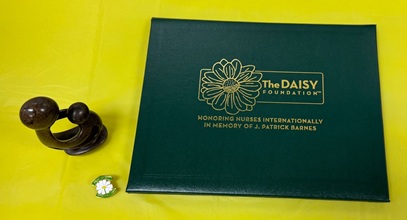
Apr 08, 2025
Celebrate our 2024 DAISY Honorees
Celebrate the 2024 DAISY Honorees from South University. We are so proud of our Honorees for all their hard work.

Apr 01, 2025
Mindfulness for Beginners: How to Get Started
In this next installment of the QEP series, learn some valuable tips to help improve your mindfulness.

Mar 19, 2025
First-Year Student Jeopardy Winners at Florida Academy of Anesthesiologist Assistants
Four first-year Anesthesiologist Assistant students win the Jeopardy game at the Florida Academy of Anesthesiologist Assistants conference.

Mar 12, 2025
Alumni Spotlight: From High School Dropout to CEO
Learn how Nadine Singh utilized her education from South University to create her own healthcare services.

Mar 11, 2025
Psychology Careers: Addiction and Substance Abuse Counselors
Learn how addiction counselors aid in substance abuse and addiction recovery.
Fill out the form and a representative will contact you today to better understand your academic goals plus answer any questions you may have.
Campuses offer flexible learning formats* including: on-campus, virtual instructions, and online courses.
*Clinical, practicum, and externship requirements exist in certain programs and require field experiences. Learning formats may not be flexible.
Success! Your request was submitted. We'll be in touch soon!
In the meantime, you can view some of our FAQs.
If you want to talk to an admissions representative ASAP, please contact us at 1-888-444-3404.
Outstanding Education for Remarkable Careers
We're committed to helping our graduates make an impact in their professional and personal lives. We applaud our alumni and the difference they make. Check out what some of our healthcare graduates have to say.

